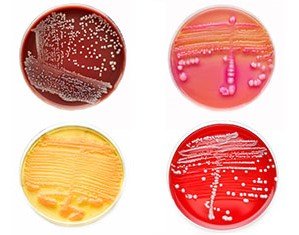Collections
Browse our Collections – bringing together peer-reviewed content from across the Society’s publishing platform on a range of hot topics and subject areas.
-
-
Pedagogy
More Less
Innovative teaching is now considered a crucial factor when designing and delivering high quality curricula and includes activities such as games, teamwork workshops and problem-solving sessions. In addition, higher education institutions are now expected to build strong bonds with the public via various outreach activities with schools or other community groups. In order to help modern microbiology educators stand up to these challenges, Access Microbiology provides a collection of pedagogical research in the field of microbiology, offering a handy database with all pedagogical papers published in Access Microbiology since 2019, updated regularly as new articles are published. This collection aims to help microbiology educators improve their teaching by introducing new innovative teaching and outreach ideas to their curricula, often generated by members and friends of the Microbiology Society.
-
-
-
Prokaryotic Stress Responses – their diversity and regulation
More LessMicroorganisms encounter a wide range of stresses and environmental changes in diverse scenarios including infection, ecological and biotechnological scenarios. By definition, stress is a driver of diversity, evolution and phenotypic heterogeneity. There are a wide range of prokaryotic stress responses, including antibiotic, envelope, host-derived, metabolic, starvation, environmental, redox, temperature, solvent and DNA damage stress responses. Microbes are also able to sense chemical stress, either via sensors at the cell surface or by cytoplasmic transcriptional regulators. Systems that have been identified in stress response research have been exploited for new treatments or increased productivity are welcomed. This collection aims to celebrate the responses induced by various stresses on diverse microbial taxa and the enabling technologies allowing their investigation including transcriptomics, metabolomics, biophysics and imaging.
This collection will feature new primary research and review articles arising from the “Prokaryotic Stress Responses – their diversity and regulation” symposium held at the Microbiology Society Annual Conference 2024 in Edinburgh, 8-11 April 2024.
The collection is also open for new submissions from all researchers across the prokaryotic stress responses field. Please indicate within your submission that it is intended for the collection.
Guest Editors: Nick Tucker (University of Suffolk, UK); Dany Beste (University of Surrey, UK)
Status: Open for submissions
Deadline for submissions: 7th October 2024
Journal submissions link: Microbiology Editorial Manager
-
-
-
Pseudomonas
More Less
This collection brings together original research articles, mini-reviews, and full-length reviews relating to Pseudomonas. Guest edited by Dr Joanna Goldberg and co-edited by Dr Kalai Mathee, this collection will not only be relevant to scientists with an interest in Pseudomonas, but also, due to the widespread use of this genus as a model for studying multiple systems, it will be of general interest to other researchers active in areas such as evolutionary biology, communication systems, genomics and biofilm research. In addition, because P. aeruginosa is a key pathogen associated with both acute and chronic infections, and particularly important in the context of cystic fibrosis and antimicrobial resistance, the collection will be of interest to clinicians and clinical researchers.
This collection was released in conjunction with Pseudomonas 2019, an international conference in Kuala Lumpur, Malaysia.
Manuscripts submitted to the journal are free to publish. The Microbiology Society offers a Gold Open Access option, please see https://www.microbiologyresearch.org/publishing-costs for further details.
-



